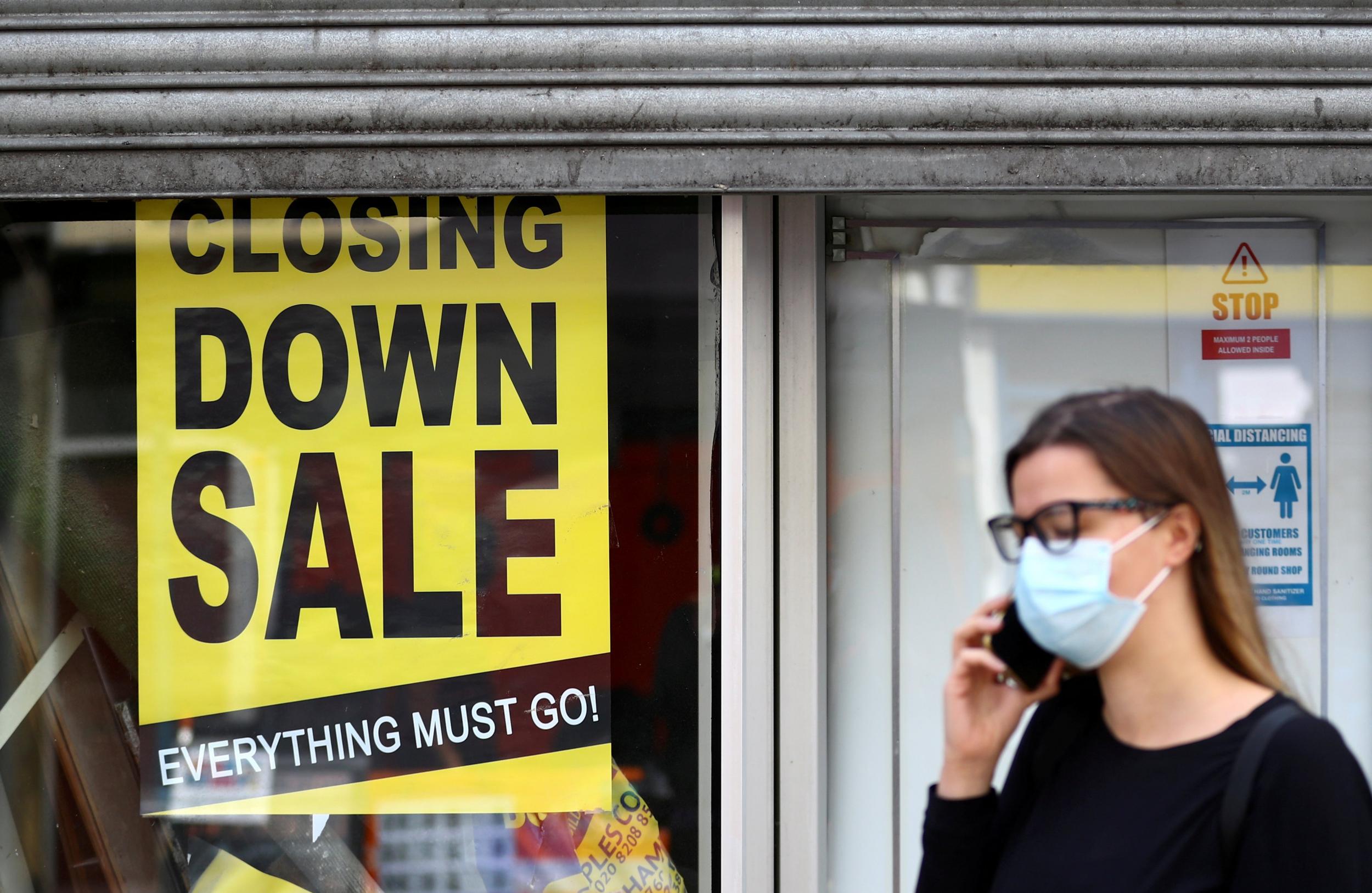650,000 UK firms in ‘serious financial distress’ despite easing of restrictions, experts warn
Firms saddled with large debts could hamper recovery from pandemic, say insolvency practitioners

Your support helps us to tell the story
From reproductive rights to climate change to Big Tech, The Independent is on the ground when the story is developing. Whether it's investigating the financials of Elon Musk's pro-Trump PAC or producing our latest documentary, 'The A Word', which shines a light on the American women fighting for reproductive rights, we know how important it is to parse out the facts from the messaging.
At such a critical moment in US history, we need reporters on the ground. Your donation allows us to keep sending journalists to speak to both sides of the story.
The Independent is trusted by Americans across the entire political spectrum. And unlike many other quality news outlets, we choose not to lock Americans out of our reporting and analysis with paywalls. We believe quality journalism should be available to everyone, paid for by those who can afford it.
Your support makes all the difference.The number of businesses in significant financial distress has jumped by a quarter over the past year to 650,000, according to insolvency specialists.
Begbies Traynor said that, while businesses have benefited from the ending of lockdown, "constant changes" to the government's road map have left many firms struggling to survive.
The insolvency advisors’ new report finds that there has also been a sharp rise in the number of "zombie" businesses which have taken on unsustainable debt through Covid loan schemes which they cannot repay.
Businesses that took on loans through the Bounce Back and CBILS schemes are now having to make their first repayments, 12 months after taking on debt at the height of the pandemic.
The report provided evidence that businesses which have been protected from insolvency by emergency measures brought in during the pandemic could soon face demands to repay debts.
Official figures show that court activity is picking up as creditors, especially landlords, become more aggressive in chasing debts, Begbies said.
Companies received 14,460 county court judgments during April, May and June - almost double the number lodged in the same period last year.
The government has yet to lay out how it will deal with billions of pounds of debt built up during the pandemic which analysts have warned could hamper the economic recovery.
Julie Palmer, partner at Begbies Traynor, said many companies remained in a fragile state, despite the removal of restrictions on 19 July.
“Although the reopening of the retail and hospitality sector has given the economy a boost in Q2, the number of zombie businesses remains considerable, with many in a fragile state," Ms Palmer said.
“Whilst 'Freedom Day' on 19th July has given many businesses a sense or normality, history suggests that unmanageable levels of debts and subsequent overtrading will eventually take their toll on these businesses."
Researchers used a scoring system which screens companies for a sustained or marked deterioration in key financial ratios and indicators including working capital, contingent liabilities and the amount of profits they have retained.
Ric Traynor, executive chairman of Begbies Traynor, warned that businesses faced living with sustained levels of debt for years to come
“Hidden risks abound for UK businesses and all represent a real threat to corporate survival in the short term," he said.
Among those is a shortage of supplies which has affected car makers, electronics firms and builders' merchants, among others.
Staff absence due to self-isolation and the limited availability of foreign/migrant labour due to Covid and Brexit is also having an impact, Mr Traynor said.
He predicts that these factors mean the number of businesses becoming insolvent is likely to increase in the latter months of this year and into 2022.
Join our commenting forum
Join thought-provoking conversations, follow other Independent readers and see their replies
Comments